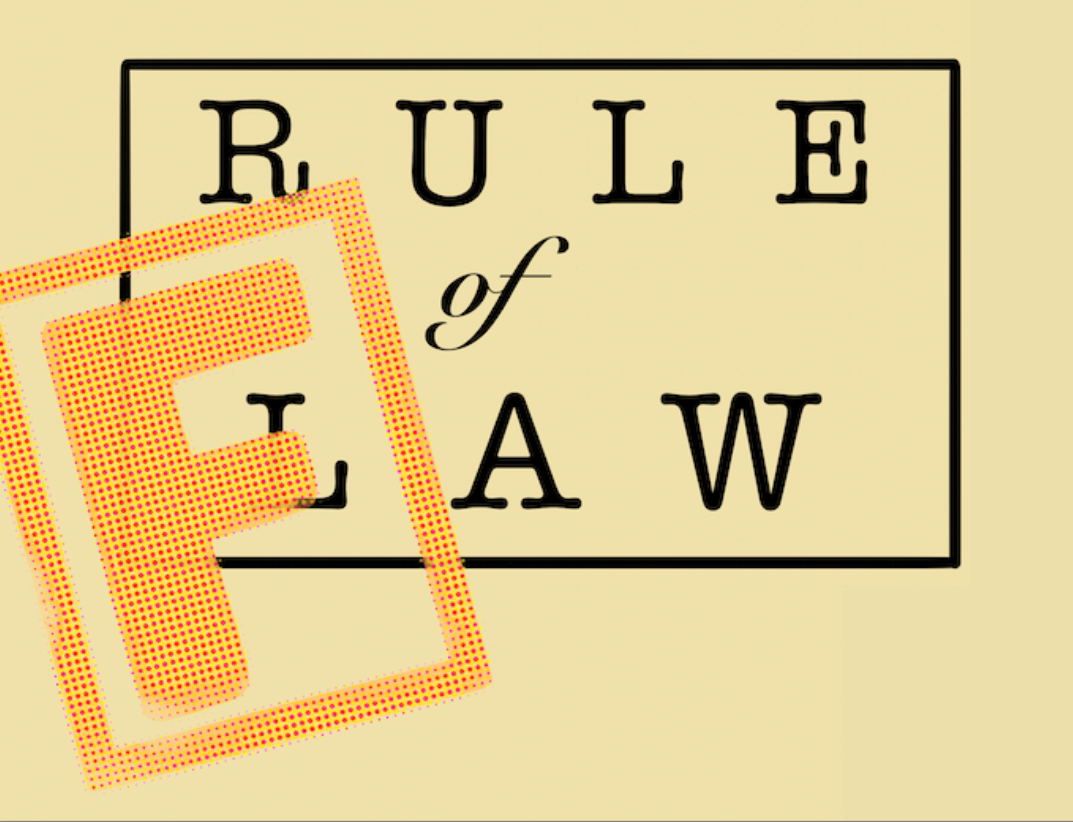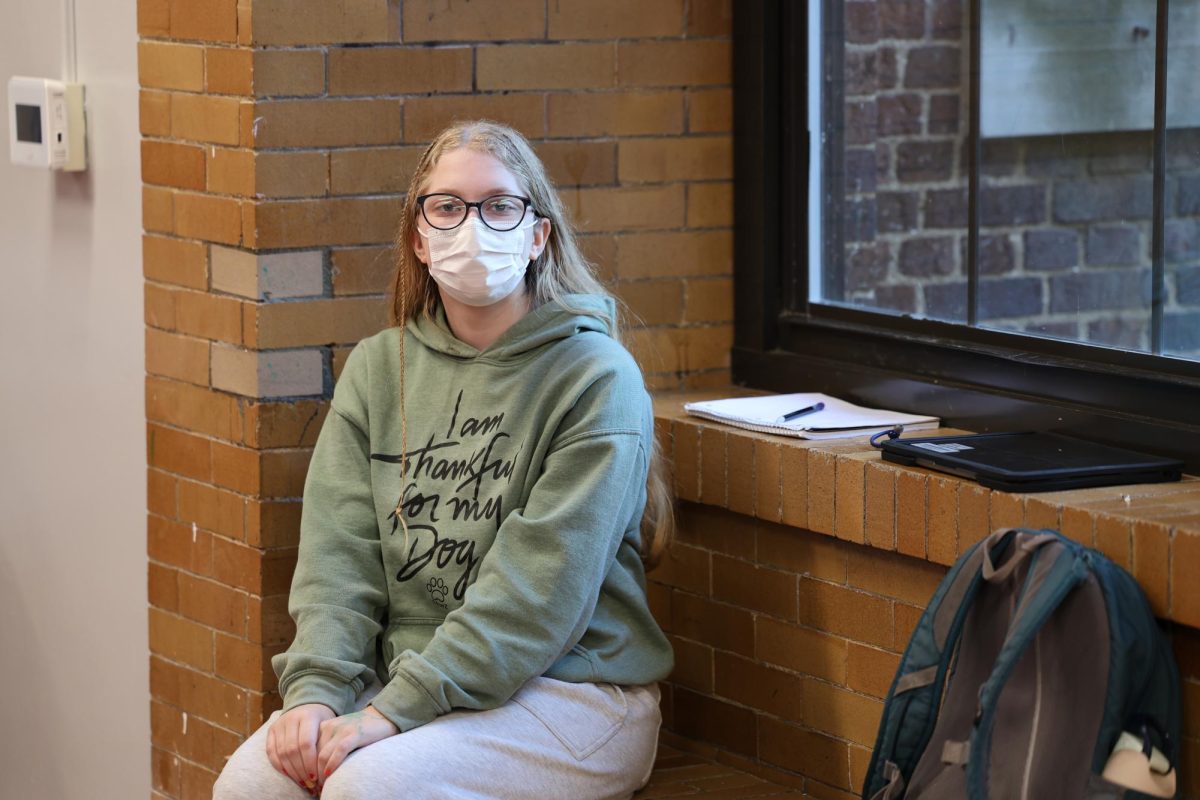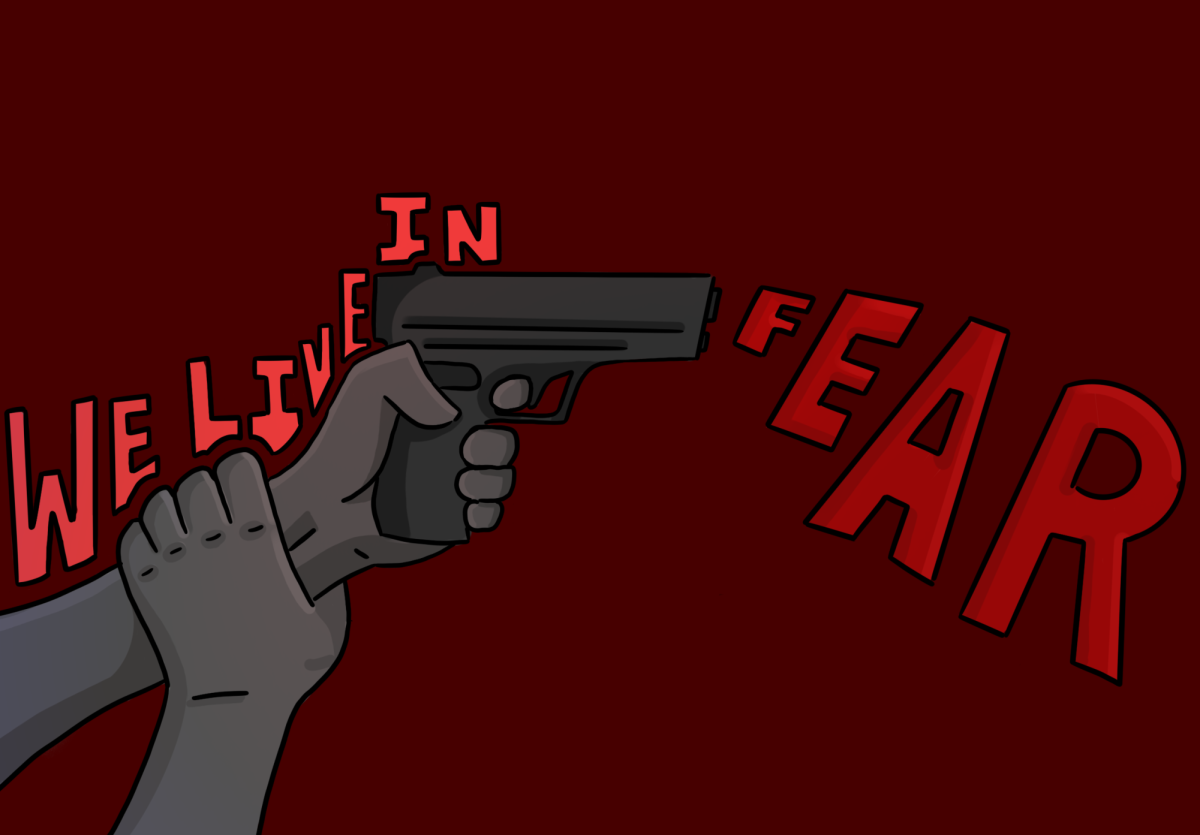Only one president in the history of our country is a convicted felon.
This fact alone should give us pause. But what’s truly alarming is not just the conviction itself — it’s his administration’s persistent disregard for the very foundation of our democracy: the rule of the law.
Our Constitution states that nobody is above the law, not even the president. This isn’t just a legal technicality; it’s the cornerstone of our democracy, the barrier that separates us from both autocracy and tyranny. Yet, in recent weeks, we’ve stood and watched as the law is prodded, deliberately weakened by those entrusted to uphold it.
“He who saves his Country does not violate any Law,” said President Donald Trump on Feb. 15, on the platform X, formally known as Twitter.
This statement suggests that he believes himself to be above the law.
It came as his administration refused to comply with federal court orders to stop his attempts (via executive orders) to create federal spending freezes. This isn’t merely a policy disagreement; it’s a direct challenge to the separation of power, the very system that protects us from dictatorship and tyranny.
“When students come to law school, they think that the rule of law means that we all have to obey the law even if we don’t like the law,” said Barbara McQuade, a professor from practice at the University of Michigan’s law school and former U.S. attorney for the Eastern District of Michigan. “There are ways to change it, but until it’s changed, you have to follow it … but to willfully defy the law feels very different from anything we’ve seen before.”
This administration is going to push the boundaries of what they can and can’t do, and when told to stop, they’ll keep going. This can be seen in actions reminiscent of what happened on Feb. 9, when Vice President J.D. Vance said on X, “Judges aren’t allowed to control the executive’s legitimate power.”
Additionally, Trump’s misuse of executive orders is blatantly alarming. Executive orders are intended as directives for federal employees on how to implement laws, particularly in times of crisis. However, he is using them as an attempt to bypass the rest of the government: to single-handedly enforce his will. For example, his Jan. 20 executive order calls for a partial deletion of the 14th Amendment. As of March 5, 2025, there were at least 10 active lawsuits against Trump.
“You can’t just take birthright citizenship away through an executive order,” McQuade said.
This is not the first time our nation has faced challenges to its constitutional framework. Historically, presidents have tested their powers, but ultimately yielded to judicial authority. When the Supreme Court ruled against President Harry Truman’s seizure of steel mills during the Korean War in 1952, he complied — despite his vehement disapproval. Further, when the Court ordered President Richard Nixon to turn over the Watergate tapes in 1974, he reluctantly did so, knowing that defiance would undermine the very system of government he had sworn to protect. Even Andrew Jackson, who allegedly dismissed a Supreme Court ruling, never explicitly defied a direct court order.
What we’re witnessing today is far more dangerous: a president who openly questions whether court orders apply to him at all.
The people who created our Constitution deliberately created a system of government that would prevent the rise of a monarch or dictator. Having just fought a revolution against King George III, they were acutely aware of the dangers of concentrated power. The Founding Fathers created a system of checks and balances to ensure no single branch could dominate the others.
History warns us of what happens when these safeguards erode. Democracies rarely collapse overnight. More often, they decay gradually. As executive powers expand, courts are undermined and the public becomes desensitized to democratic violations.
“It seems that what President Trump is trying to do now is to elevate the presidency over those other two branches of government,” McQuade said.
What makes this especially dangerous is not just the actions of the administration, but the lack of action from the American public. In comparison, the legislative branch has been slow to respond, even as the “flood the zone” strategy is in full effect. In conversations with classmates and neighbors, I’ve noticed a concerning trend: many have entirely stopped following the news, citing exhaustion.
This fatigue is exactly what authoritarians count on: a public too overwhelmed to act. This strategy is called “flooding the zone,” which creates enough chaos and controversy that people simply choose to tune it out, allowing for unchecked power to thrive.
The erosion of democratic norms isn’t uniquely American — it’s a global pattern. In Hungary, Viktor Orbán’s government has methodically weakened judicial independence and press freedom while maintaining the outward appearance of democratic processes. In Turkey, Recep Tayyip Erdoğan gradually consolidated executive power through constitutional amendments and selective enforcement of laws against political opponents. In both cases, courts were first delegitimized, then captured and finally, weaponized.
When Trump questions whether court rulings apply to him, he’s not merely challenging a legal decision — he’s following a well-documented global path toward democratic erosion. When administrative officials push the boundaries of their power, waiting until someone tells them to stop — and then questioning whether they must obey — our crisis is no longer political; it’s constitutional.
I see it happening across communities I am a part of. Even in my journalism class, my peers have admitted that they’ve stopped following the news.
The silence surrounding these constitutional breaches is deafening. The divide between those who disengage out of self-preservation and those who remain vigilant may determine whether this constitutional crisis descends into a constitutional collapse.
Turning away from our reality doesn’t make it any less real. The Constitution doesn’t defend itself — we must defend it.
The 14th Amendment, separation of powers and judicial review aren’t abstract concepts. They’re the safeguards that ensure our freedom. When a president suggests he can circumvent these protections for the greater good of “saving the country,” we must ask: what country will be left to save once those protections are gone?
The administration’s response — suggesting that their compliance with legal standards is optional — sets a dangerous precedent. If accepted, this logic would effectively place the president’s personal judgment above constitutional constraints.
What’s particularly troubling is the domino effect this could create. If the president can ignore court rulings on spending authority, what prevents ignoring rulings about free speech, due process or equal protection? The boundaries between governmental branches aren’t arbitrary bureaucratic divisions — they’re essential safeguards against tyranny.
We’ve already seen restrictions on First Amendment rights. On Feb. 25, it was announced that Trump will be hand-picking journalists covering his administration. This means he will control which reporters get to ask questions, breaking decades of precedent across both Republican and Democratic administrations.
A spokesman for The New York Times said on Feb. 25, “The White House’s move to handpick favored reporters to observe the president — and exclude anyone whose coverage the administration may not like — is an effort to undermine the public’s access to independent, trustworthy information about the most powerful person in America.”
Democracy doesn’t die in one big dramatic moment — it erodes slowly, through apathy, fatigue and our collective willingness to look the other way.
Yes, courts move slowly. Yes, the media can feel overwhelming, but we cannot afford to disengage. The rule of the law protects us most when those in power seek to exploit it for personal or ideological gain.
We must remember: in a democracy, the power flows from the governed to the government — not the other way around.
Staying engaged doesn’t require consuming every headline or understanding every legal nuance. Democracy thrives when citizens take sustained, focused action: find reliable news sources, focus on local engagement, engage in constructive dialogue and vote in every election — not just presidential ones. Judicial elections, school board races and primaries often have low turnout, meaning that your vote carries even more weight.
These actions may seem small compared to the magnitude of the threats we face, but democracy has always been sustained by millions of citizens taking these seemingly small steps together. It depends on not just the Constitution, but our collective effort to uphold it.










